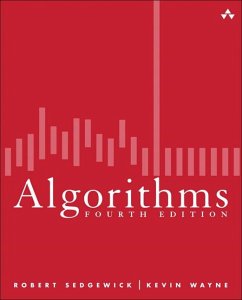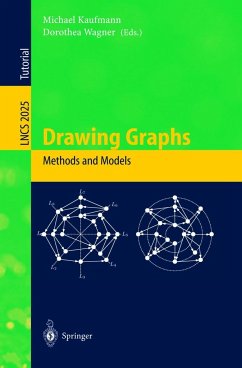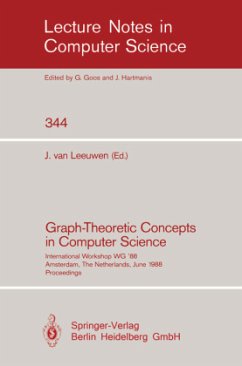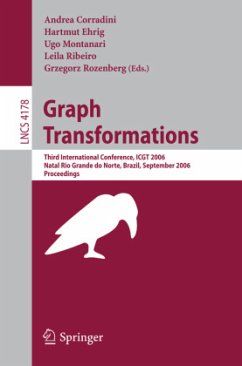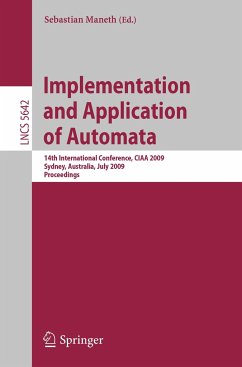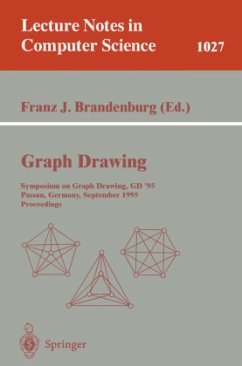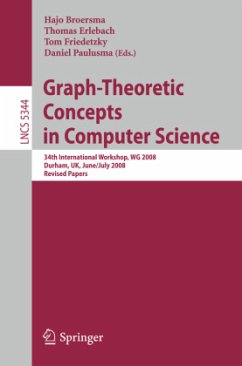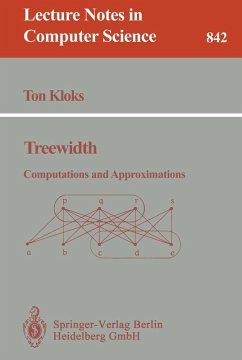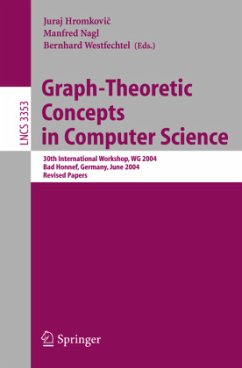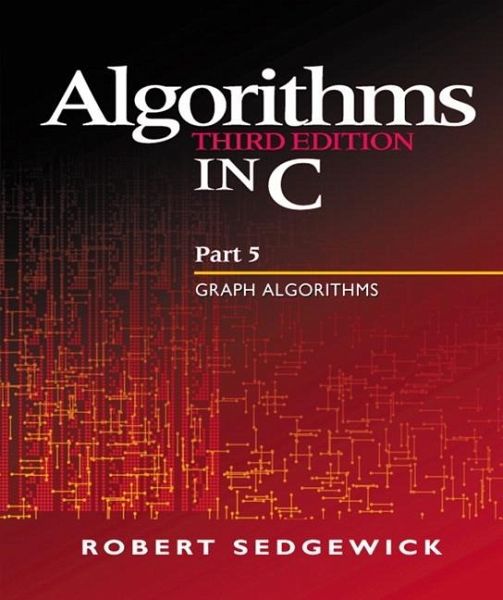
Algorithms in C, Part 5: Graph Algorithms
Versandkostenfrei!
Versandfertig in 1-2 Wochen
42,99 €
inkl. MwSt.
Weitere Ausgaben:

PAYBACK Punkte
21 °P sammeln!
Graph algorithms are increasingly critical for a wide range of applications, including network connectivity, circuit design, scheduling, transaction processing, and resource allocation. The latest book in Robert Sedgewick's classic series on algorithms focuses entirely on graph algorithms, introducing many new implementations and figures, extensive new commentary, more detailed descriptions, and hundreds of new exercises. For developers, researchers and students alike, this is the definitive guide to graph algorithms.
Once again, Robert Sedgewick provides a current and comprehensive introduction to important algorithms. The focus this time is on graph algorithms, which are increasingly critical for a wide range of applications, such as network connectivity, circuit design, scheduling, transaction processing, and resource allocation. In this book, Sedgewick offers the same successful blend of theory and practice with concise implementations that can be tested on real applications, which has made his work popular with programmers for many years.
Algorithms in C, Third Edition, Part 5: Graph Algorithms is the second book in Sedgewick's thoroughly revised and rewritten series. The first book, Parts 1-4, addresses fundamental algorithms, data structures, sorting, and searching. A forthcoming third book will focus on strings, geometry, and a range of advanced algorithms. Each book's expanded coverage features new algorithms and implementations, enhanced descriptions and diagrams, and awealth of new exercises for polishing skills. A focus on abstract data types makes the programs more broadly useful and relevant for the modern object-oriented programming environment.
Coverage includes:
A complete overview of graph properties and types Diagraphs and DAGs Minimum spanning trees Shortest paths Network flows Diagrams, sample C code, and detailed algorithm descriptions
The Web site for this book (http://www.cs.princeton.edu/~rs/) provides additional source code for programmers along with numerous support materials for educators.
A landmark revision, Algorithms in C, Third Edition, Part 5 provides a complete tool set for programmers to implement, debug, and use graph algorithms across a wide range of computer applications.
Algorithms in C, Third Edition, Part 5: Graph Algorithms is the second book in Sedgewick's thoroughly revised and rewritten series. The first book, Parts 1-4, addresses fundamental algorithms, data structures, sorting, and searching. A forthcoming third book will focus on strings, geometry, and a range of advanced algorithms. Each book's expanded coverage features new algorithms and implementations, enhanced descriptions and diagrams, and awealth of new exercises for polishing skills. A focus on abstract data types makes the programs more broadly useful and relevant for the modern object-oriented programming environment.
Coverage includes:
A complete overview of graph properties and types Diagraphs and DAGs Minimum spanning trees Shortest paths Network flows Diagrams, sample C code, and detailed algorithm descriptions
The Web site for this book (http://www.cs.princeton.edu/~rs/) provides additional source code for programmers along with numerous support materials for educators.
A landmark revision, Algorithms in C, Third Edition, Part 5 provides a complete tool set for programmers to implement, debug, and use graph algorithms across a wide range of computer applications.




